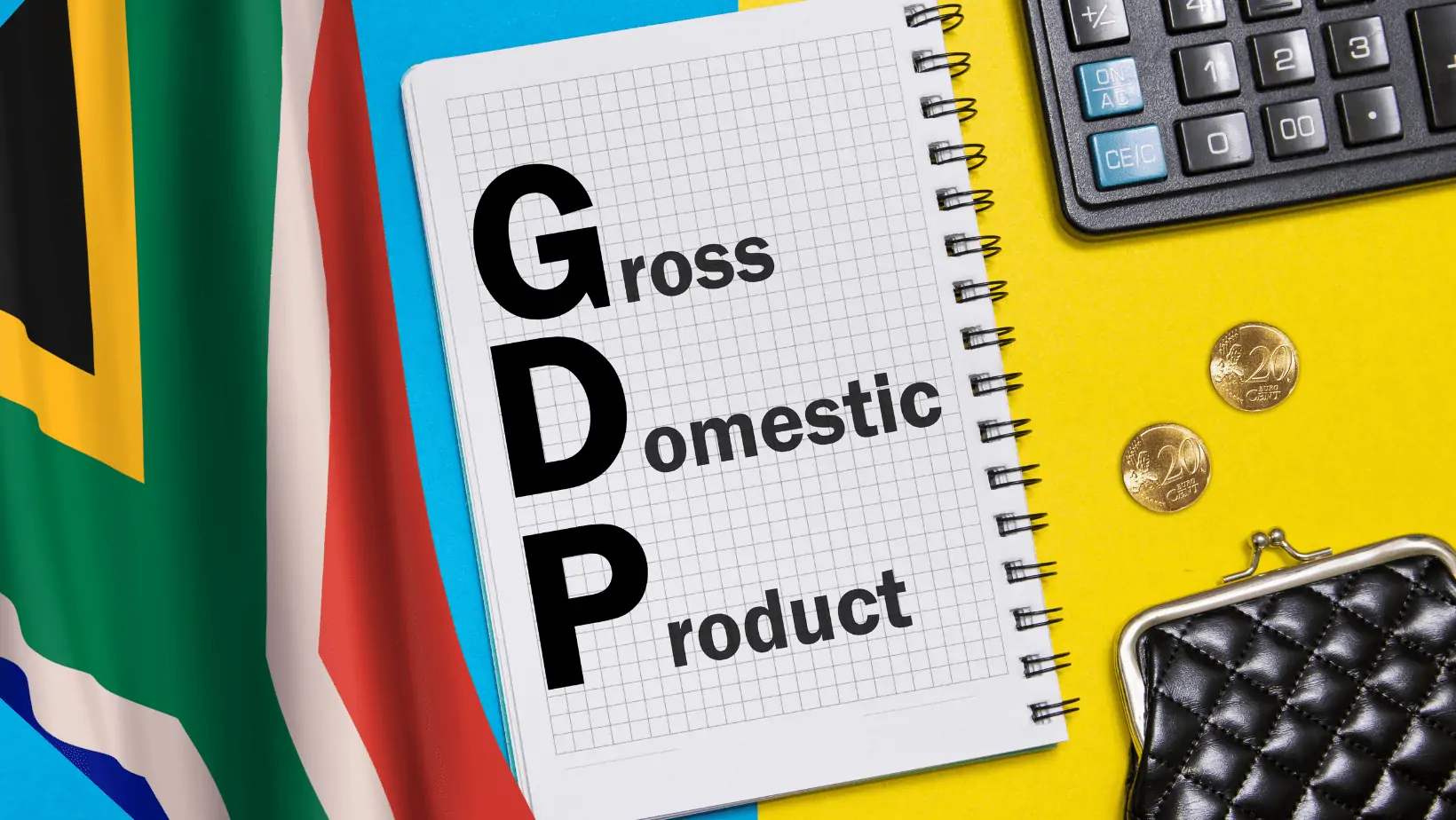
South Africa’s economic landscape continues to evolve, with the latest data revealing a 0.6% increase in Gross Domestic Product (GDP) during the second quarter of 2023. This growth, measured by the production approach, offers a promising outlook for the nation’s economic recovery, albeit with some interesting sectoral dynamics.
Key Points:
Gross Domestic Product (GDP) is a fundamental indicator of a country’s economic health. It measures the total value of goods and services produced within a nation’s borders during a specific time period. In the second quarter of 2023, South Africa’s GDP exhibited positive growth, suggesting improvements in various economic sectors.
Let’s delve deeper into the data to understand the key drivers behind this growth:
The manufacturing industry emerged as a significant player in South Africa’s Q2 2023 GDP growth story. This sector expanded by an impressive 2.2%, making a substantial contribution of 0.3 percentage points to overall GDP growth. Nine out of ten manufacturing divisions reported positive growth rates during this period.
Table 1: Growth in Manufacturing Divisions
| Manufacturing Division | Growth Rate (%) |
|---|---|
| Petroleum, chemical products, rubber, and plastic products | 2.2 |
| Basic iron and steel, non-ferrous metal products, metal products, and machinery | Significant contribution |
Among these divisions, the petroleum, chemical products, rubber, and plastic products segment played a pivotal role in driving growth. Additionally, the basic iron and steel, non-ferrous metal products, metal products, and machinery division also made a significant contribution to the industry’s expansion.
The finance, real estate, and business services sector also contributed positively to South Africa’s GDP growth during the second quarter of 2023. This industry saw a 0.7% increase, adding 0.2 percentage points to overall GDP growth. The growth was primarily attributed to increased economic activities in financial intermediation, insurance, and real estate.
South Africa’s agriculture, forestry, and fishing industry experienced robust growth, surging by 4.2% in the second quarter. This upswing contributed 0.1 percentage point to GDP growth, driven primarily by increased economic activities in field crops and horticulture products.
The personal services sector posted a 0.7% growth rate during the second quarter, making a 0.1 percentage point contribution to GDP growth. This growth was attributed to increased economic activities in health and education.
Meanwhile, the mining and quarrying industry recorded a 1.3% increase, contributing 0.1 percentage point to GDP growth. This growth was driven by increased economic activities in platinum group metals (PGMs), gold, other metallic minerals, and coal.
Understanding GDP growth also involves examining the expenditure side of the equation. Here’s a closer look at the expenditure components that influenced South Africa’s Q2 2023 GDP figures:
Table 2: Expenditure on GDP Components
| Component | Growth Rate (%) | Contribution to Growth (Percentage Points) |
|---|---|---|
| Household Final Consumption Expenditure (HFCE) | -0.3 | -0.2 |
| Final Consumption Expenditure by General Government | 1.7 | Significant increase |
| Total Gross Fixed Capital Formation | 3.9 | Machinery and equipment, construction works |
| Inventory Build-Up | R58.9 billion | Manufacturing, trade, catering, mining |
| Net Exports | Negative impact | Exports and imports |
One notable trend in South Africa’s Q2 2023 GDP data is the decline in household final consumption expenditure (HFCE), which decreased by 0.3%. This decline had a negative impact of -0.2 percentage points on overall GDP growth. The decrease was observed across several categories, including food and non-alcoholic beverages, furnishings, and housing.
Table 3: HFCE Declines by Category
| Category | Growth Rate (%) | Contribution to HFCE Growth (Percentage Points) |
|---|---|---|
| Food and non-alcoholic beverages | -1.2 | -0.2 |
| Furnishings, household equipment, and maintenance | -2.1 | -0.1 |
| ‘Other’ category | -0.9 | -0.1 |
| Housing, water, electricity, gas, and other fuels | -0.5 | -0.1 |
| Recreation and culture | -0.9 | -0.1 |
| Clothing and footwear | -1.0 | -0.1 |
However, not all areas of household spending experienced declines. Expenditures on restaurants and hotels, transport, health, and education all contributed positively to HFCE growth in the second quarter.
In contrast to declining household spending, final consumption expenditure by general government increased significantly by 1.7%. This growth was mainly driven by increases in goods and services, as well as compensation of employees.
Total gross fixed capital formation also played a vital role in South Africa’s GDP growth, expanding by 3.9%. This growth was led by machinery and other equipment, which grew by 11.0% and contributed 4.4 percentage points to the overall increase. Construction works also made a modest contribution of 0.1 percentage point.
One intriguing aspect of South Africa’s Q2 2023 economic data is the build-up of inventories, totaling R58.9 billion (seasonally adjusted and annualized value). This build-up was primarily driven by three industries: manufacturing, trade, catering, accommodation, and mining and quarrying.
On the other hand, net exports had a negative impact on GDP expenditure growth in the second quarter. While exports of goods and services increased by 0.9%, influenced by higher trade in chemical products, prepared foodstuffs, beverages and tobacco, vehicles and transport equipment, mineral products, and machinery and electrical equipment, imports of goods and services surged by 3.3%. This increase in imports was primarily driven by higher trade in machinery and electrical equipment, vegetable products, artificial resins and plastics, base metals and articles of base metals, and animal and vegetable fats and oil.
South Africa’s Q2 2023 GDP data provides a nuanced picture of the nation’s economic performance. While certain sectors, such as manufacturing and agriculture, are experiencing growth, household spending has declined. Government expenditure and investments are playing pivotal roles in supporting overall economic growth.
Net exports remain a challenge, with imports outpacing exports during this period. Managing trade imbalances will be essential for long-term economic stability.
This website uses cookies.